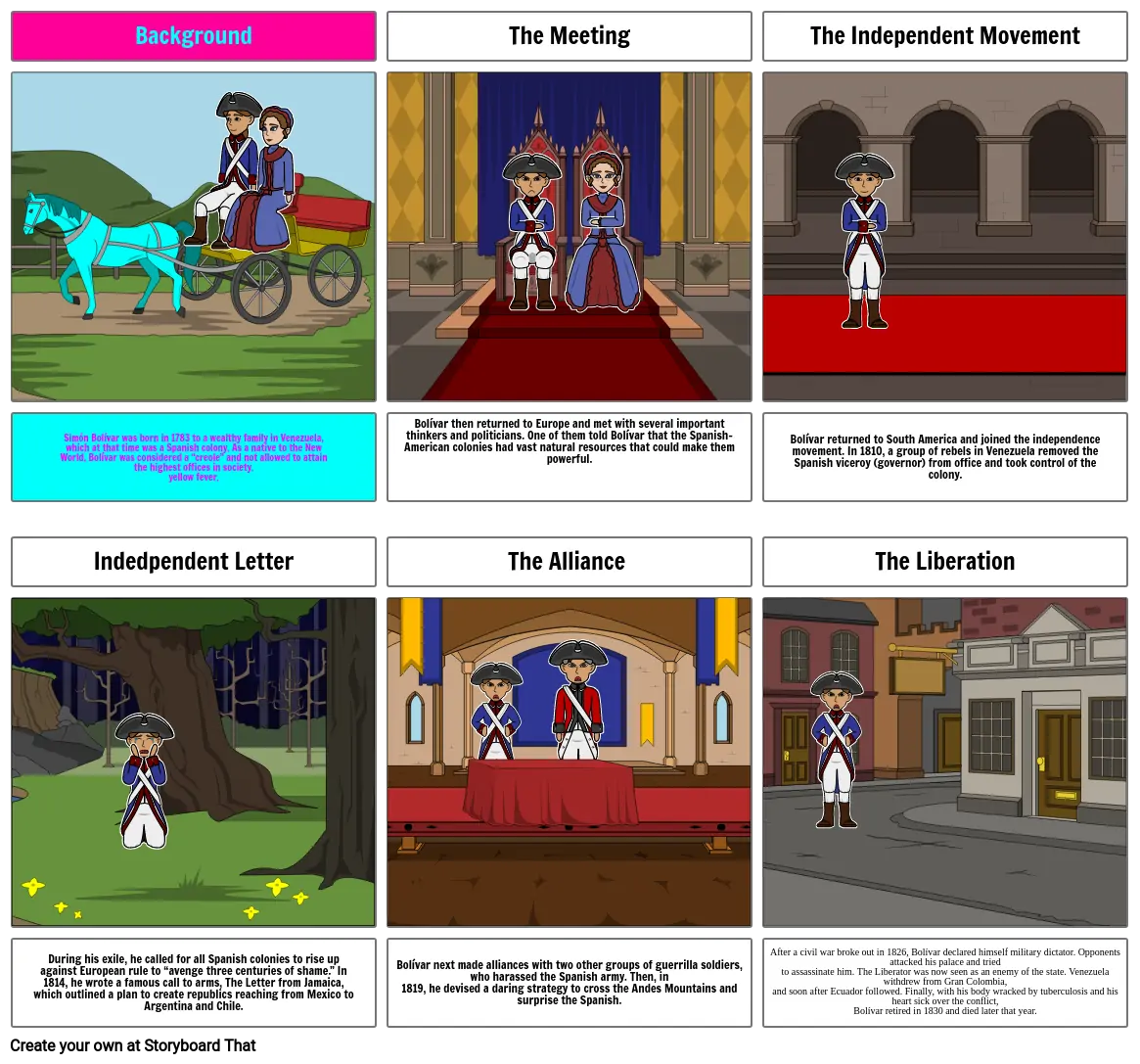The Liberator of Latin America

Siužetinės Linijos Tekstas
- Background
- The Meeting
- The Independent Movement
- Simón Bolívar was born in 1783 to a wealthy family in Venezuela,which at that time was a Spanish colony. As a native to the NewWorld, Bolívar was considered a “creole” and not allowed to attainthe highest offices in society.yellow fever.
- Indedpendent Letter
- Bolívar then returned to Europe and met with several importantthinkers and politicians. One of them told Bolívar that the Spanish-American colonies had vast natural resources that could make thempowerful.
- The Alliance
- Bolívar returned to South America and joined the independencemovement. In 1810, a group of rebels in Venezuela removed theSpanish viceroy (governor) from office and took control of thecolony.
- The Liberation
- During his exile, he called for all Spanish colonies to rise upagainst European rule to “avenge three centuries of shame.” In1814, he wrote a famous call to arms, The Letter from Jamaica,which outlined a plan to create republics reaching from Mexico toArgentina and Chile.
- Bolívar next made alliances with two other groups of guerrilla soldiers, who harassed the Spanish army. Then, in1819, he devised a daring strategy to cross the Andes Mountains and surprise the Spanish.
- After a civil war broke out in 1826, Bolívar declared himself military dictator. Opponents attacked his palace and triedto assassinate him. The Liberator was now seen as an enemy of the state. Venezuela withdrew from Gran Colombia,and soon after Ecuador followed. Finally, with his body wracked by tuberculosis and his heart sick over the conflict,Bolívar retired in 1830 and died later that year.
Sukurta daugiau nei 30 milijonų siužetinių lentelių
Nereikia Atsisiuntimų, Nereikia Kredito Kortelės ir Nereikia Prisijungti!


